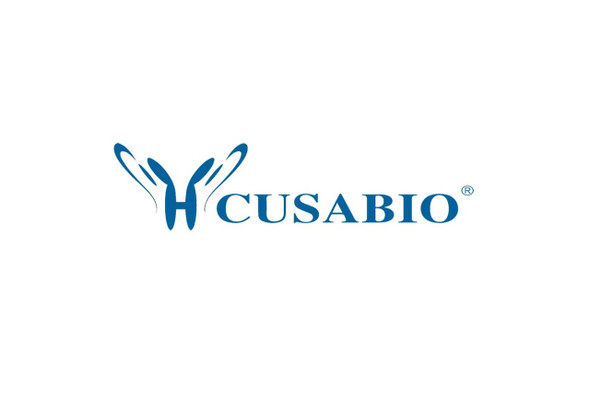Cusabio Escherichia coli Recombinants
Recombinant Escherichia coli Cytosine deaminase (codA) | CSB-YP340707ENV
- SKU:
- CSB-YP340707ENV
- Availability:
- 25 - 35 Working Days
Description
Recombinant Escherichia coli Cytosine deaminase (codA) | CSB-YP340707ENV | Cusabio
Alternative Name(s): Cytosine aminohydrolaseIsoguanine deaminase1
Gene Names: codA
Research Areas: Others
Organism: Escherichia coli (strain K12)
AA Sequence: SNNALQTIINARLPGEEGLWQIHLQDGKISAIDAQSGVMPITENSLDAEQGLVIPPFVEPHIHLDTTQTAGQPNWNQSGTLFEGIERWAERKALLTHDDVKQRAWQTLKWQIANGIQHVRTHVDVSDATLTALKAMLEVKQEVAPWIDLQIVAFPQEGILSYPNGEALLEEALRLGADVVGAIPHFEFTREYGVESLHKTFALAQKYDRLIDVHCDEIDDEQSRFVETVAALAHHEGMGARVTASHTTAMHSYNGAYTSRLFRLLKMSGINFVANPLVNIHLQGRFDTYPKRRGITRVKEMLESGINVCFGHDDVFDPWYPLGTANMLQVLHMGLHVCQLMGYGQINDGLNLITHHSARTLNLQDYGIAAGNSANLIILPAENGFDALRRQVPVRYSVRGGKVIASTQPAQTTVYLEQPEAIDYKR
Source: Yeast
Tag Info: N-terminal 6xHis-tagged
Expression Region: 2-427aa
Sequence Info: Full Length of Mature Protein
MW: 49.5 kDa
Purity: Greater than 90% as determined by SDS-PAGE.
Relevance: Catalyzes the hydrolytic deamination of cytosine to uracil. Is involved in the pyrimidine salvage pathway, which allows the cell to utilize cytosine for pyrimidine nucleotide synthesis. Is also able to catalyze deamination of isoguanine, a mutagenic oxidation product of adenine in DNA, and of isocytosine. To a lesser extent, also catalyzes the conversion of 5-fluorocytosine (5FC) to 5-fluorouracil (5FU); this activity allows the formation of a cytotoxic chotherapeutic agent from a non-cytotoxic precursor.
Reference: Characterization of the Escherichia coli codBA operon encoding cytosine permease and cytosine deaminase.Danielsen S., Kilstrup M., Barilla K., Jochimsen B., Neuhard J.Mol. Microbiol. 6:1335-1344(1992)
Storage: The shelf life is related to many factors, storage state, buffer ingredients, storage temperature and the stability of the protein itself. Generally, the shelf life of liquid form is 6 months at -20?/-80?. The shelf life of lyophilized form is 12 months at -20?/-80?.
Notes: Repeated freezing and thawing is not recommended. Store working aliquots at 4? for up to one week.
Function: Catalyzes the hydrolytic deamination of cytosine to uracil. Is involved in the pyrimidine salvage pathway, which allows the cell to utilize cytosine for pyrimidine nucleotide synthesis. Is also able to catalyze deamination of isoguanine, a mutagenic oxidation product of adenine in DNA, and of isocytosine. To a lesser extent, also catalyzes the conversion of 5-fluorocytosine (5FC) to 5-fluorouracil (5FU); this activity allows the formation of a cytotoxic chemotherapeutic agent from a non-cytotoxic precursor.
Involvement in disease:
Subcellular Location:
Protein Families: Metallo-dependent hydrolases superfamily, Cytosine deaminase family
Tissue Specificity:
Paythway:
Form: Liquid or Lyophilized powder
Buffer: If the delivery form is liquid, the default storage buffer is Tris/PBS-based buffer, 5%-50% glycerol. If the delivery form is lyophilized powder, the buffer before lyophilization is Tris/PBS-based buffer, 6% Trehalose, pH 8.0.
Reconstitution: We recommend that this vial be briefly centrifuged prior to opening to bring the contents to the bottom. Please reconstitute protein in deionized sterile water to a concentration of 0.1-1.0 mg/mL.We recommend to add 5-50% of glycerol (final concentration) and aliquot for long-term storage at -20?/-80?. Our default final concentration of glycerol is 50%. Customers could use it as reference.
Uniprot ID: P25524
HGNC Database Link: N/A
UniGene Database Link: N/A
KEGG Database Link: KEGG
STRING Database Link: STRING
OMIM Database Link: N/A









